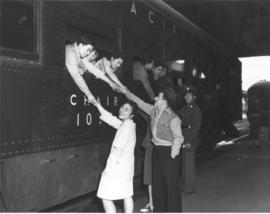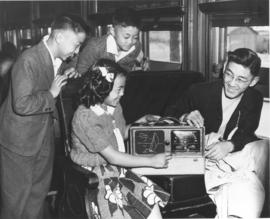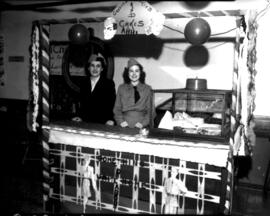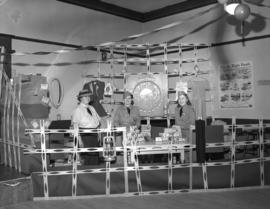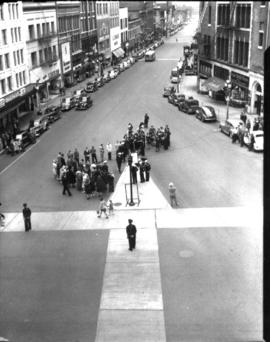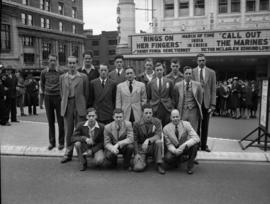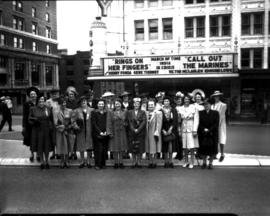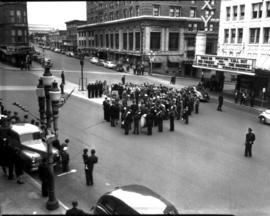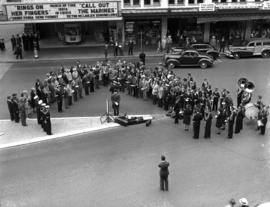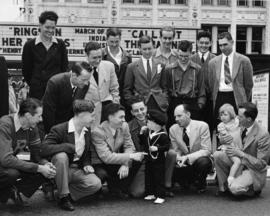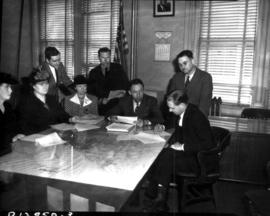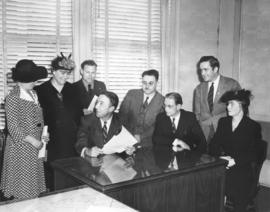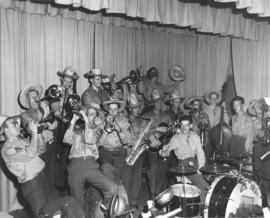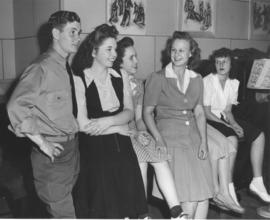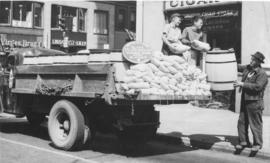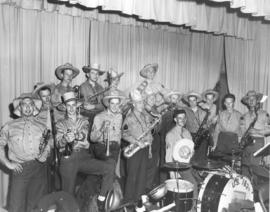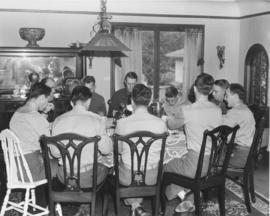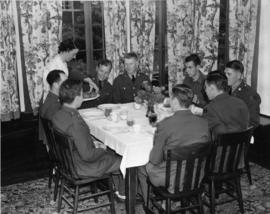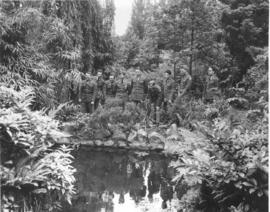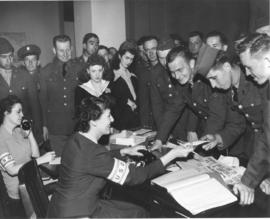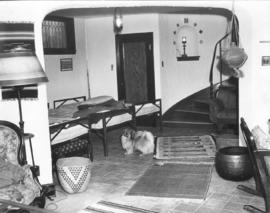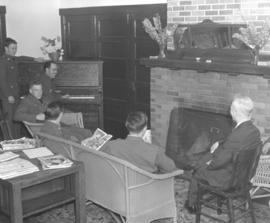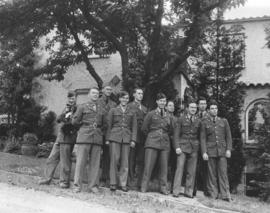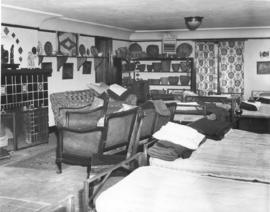- Item
- 1942-05-17
Part of Richards Studio Photographs
On May 17, 1942, 418 Tacoma residents of Japanese ancestry were shipped, in accordance with Executive Order 9066, to Pinedale Assembly Center near Fresno California. Tsuyoshi Horike, left, and Hanako Horike reach out the train window to Miya Fukuyama. An unidentified youth reaches for the hand of Salem Yagawa. Isamu Kawakumi & Charles Miyoshi bid farewell to Noboru Taki, in uniform. The 418 departing on the 17th would be joined with their friends in California as 441 more departed on Monday. All four of the young men in the photograph grew up in the White River Valley area near Auburn. The Taki family owned a parking garage in downtown Tacoma and the young men were helping their friend Noboru, 22, with the business. In early 1942, Noboru was drafted and, in March, inducted into the army. The same day as he departed, his father was arrested by the Department of Justice for suspected anti-American affiliations. He was later released to reunite with his incarcerated family. Norboru Taki, after serving his country at war as his family resided in a detention camp, settled in Auburn. He and his wife later moved to Seattle where they raised five children. (T. Times 5/18/1942, pg. 1; TNT 5/18/2003, pg. B8+ by Stan Flewelling)
World War, 1939-1945--Relocation camps; Japanese Americans--Evacuation & relocation, 1942-1945; Union Station (Tacoma); Horike, Tsuyoshi; Horike, Hanako; Fukuyama, Miya; Kawakumi, Isamu; Miyoshi, Charles; Taki, Noboru; Yagawa, Salem;
